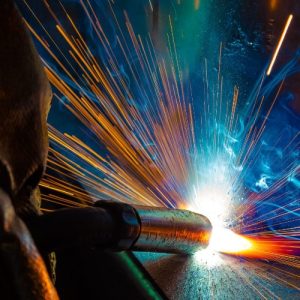 Why Welding Safety Is So Important
Why Welding Safety Is So Important
As welding presents many potential hazards, it’s crucial for welders to practice safety by taking the following steps:
• Analyzing surroundings
• Using tools and equipment in the way they are intended
• Following all manufacturer guidelines
• Ensuring others are not in harm’s way while working
Accidents happen, but many injuries can be avoided by having an understanding of what to do and what not to do when working in a welding environment. Before starting any project, welders must take the time to ensure they know how to execute the task safely above all else.
Physical Injuries
Without wearing the proper PPE (personal protective equipment), welders can experience a variety of physical hazards, including eye damage, cuts, burns, or even crushed fingers and toes. These injuries should be taken seriously, as they can put a welder out of work in some cases.
Avoid Clutter
A cluttered workspace is one of the most common causes of welding fires and explosions. Sparks from the welding arc can fly up to 35 feet in distance, so it’s important to keep your workspace clear, especially of any flammable materials.
Check Your Equipment
A good welder always checks to ensure their equipment is functioning properly and is fully grounded before using it. Even the most experienced welders should regularly check their equipment for common wear and tear, such as frayed wires or leaking hoses, as this can increase the chances of an accident occurring.
If a piece of equipment was running perfectly the day before, don’t assume that it’s still in the same condition. Always do a full inspection before using it again—you can never be too sure!
As a general rule, always stay organized and keep everything in its place. Your workspace should only contain the tools and equipment you’re using for that specific project.
Protect Yourself From Fumes and Gases
Exposure to fumes and gases can be controlled by providing adequate ventilation in the work area. Some employers will provide a fan, an exhaust system, or exhaust hoods to remove fumes and gases from the area welders are working.
When necessary, welders should wear a respirator to protect themselves from breathing in harmful substances. If you ever feel as though your breathing is inhibited, express your concerns to a supervisor immediately.
Take Precautions Against Electrocution
Electric shock is one of the most important topics for welders to be educated in, as it can pose an immediate and serious risk.
To avoid electrocution, welders must always inspect the electrode holder for damage before starting their weld. They also must ensure their gloves are dry and in good condition, never touch the metal parts of the electrode holder with skin or wet clothing, and keep dry insulation between their body and the ground or metal being welded.


